What the Catholic Church is learning from Pope Francis' big bet on 'synodality'
Why is the event considered the “greatest gamble of this papacy”?

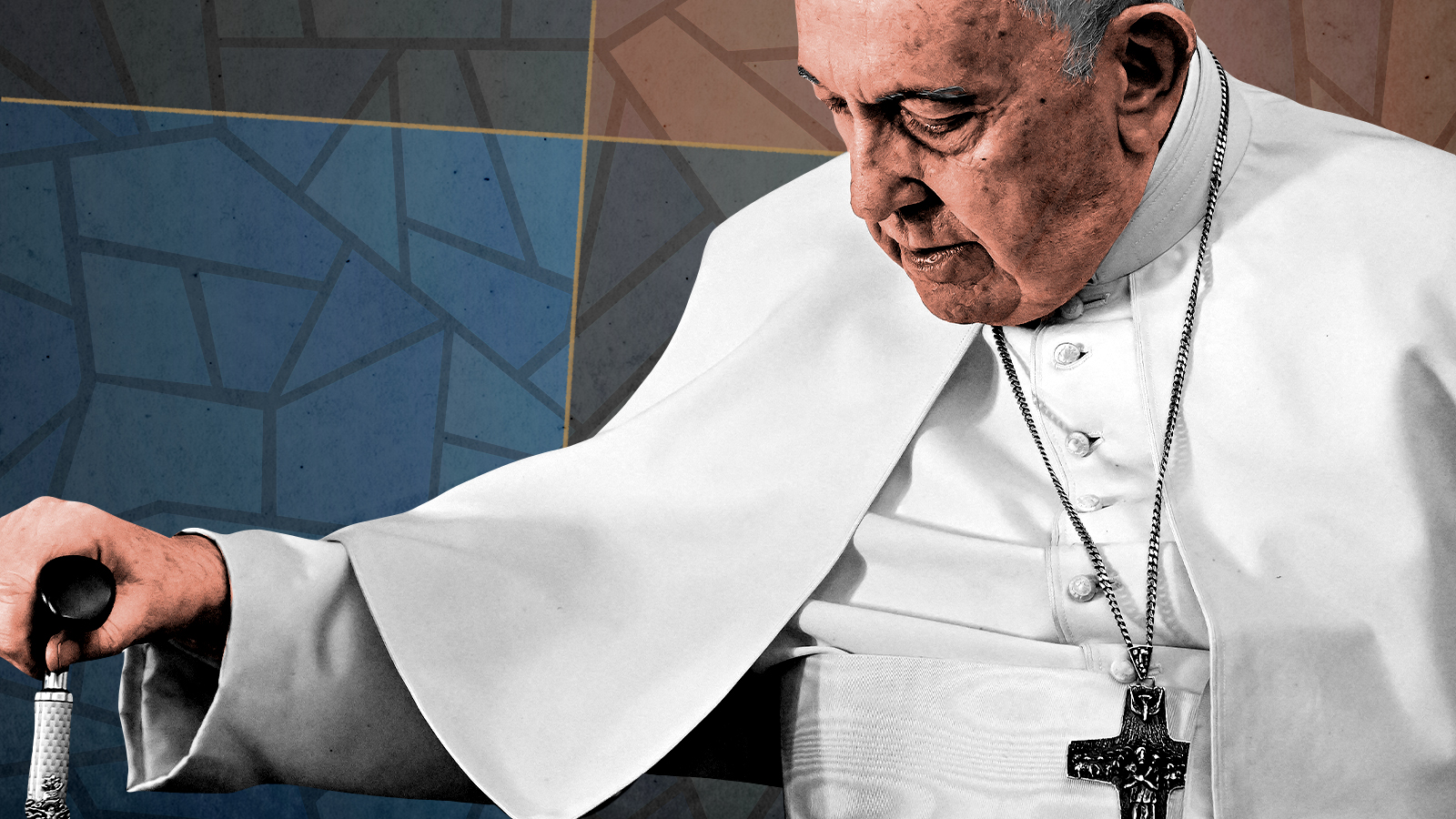
A free daily email with the biggest news stories of the day – and the best features from TheWeek.com
You are now subscribed
Your newsletter sign-up was successful
In Oct. 2021, Pope Francis launched an ambitious, audacious project to gather the world's 1.36 billion Catholics in a global synod, or advisory assembly, a process usually reserved for cardinals or bishops. His worldwide synod was so unprecedented the Vatican had to invent a new word for it, synodality, which it defines as "a style, a culture, a way of thinking and being, that reflects the truth that the church is led by the Holy Spirit who enables everyone to offer their own contribution to the church's life."
The pope's two-year-long Synod on Synodality is now at the stage where the synodal conversations at every Catholic church and organization in the U.S. and around the world have been distilled down to national summaries. The U.S. Conference of Catholic Bishops released the U.S. national synthesis report on Sept. 19. Here's a look at the Synod on Synodality, how it works, and what it will tell the pope and the world about the Roman Catholic Church.
What is the Synod on Synodality?
On one level, the Synod on Synodality is a massive prayerful listening session and exercise for building unity and mutual respect and understanding in a very large and diverse global church. But Pope Francis also hopes it will permanently change how the church operates on a parish, diocesan, and global level.
The Week
Escape your echo chamber. Get the facts behind the news, plus analysis from multiple perspectives.

Sign up for The Week's Free Newsletters
From our morning news briefing to a weekly Good News Newsletter, get the best of The Week delivered directly to your inbox.
From our morning news briefing to a weekly Good News Newsletter, get the best of The Week delivered directly to your inbox.
A synod, the Vatican explains, "is a gathering of the faithful in order to listen to what the Holy Spirit is saying to the church and asking her to be and to do." The synodal process is one "in which people participate in decision making, share responsibility for the Church's mission, and cooperate and collaborate more in the day to day life of the church," the Vatican adds, though the Catholic Church "is neither a monarchy nor a democracy."
"Pope Francis has made clear that the synod is not a parliament, or a convention, or an opinion survey," the Vatican says. "Although it has many elements familiar to political and similar processes — listening, speaking, taking votes — what differentiates a synod is that it is a spiritual process that takes place within the church."
For Pope Francis, this is also "the greatest gamble of this papacy," Fr. Thomas Reese writes at Religion News Service. Under his predecessors, synods "were stage-managed affairs, where the agenda and debate were carefully controlled," and participants used the opportunity mostly to "show their loyalty to the pope and his teaching." Francis has asked for, and gotten, frank feedback from the bishops, he adds. And this global synod "may succeed in bringing greater unity to the church, or it could result in greater conflict and division."
How does the process work?
After Pope Francis launched the synod in Oct. 2021, every Catholic parish, school, association, and other organizations worldwide was invited to organize and hold its own listening and discernment sessions, each of which was documented and sent to the local diocese or archdiocese. The diocese synthesized the contributions from each individual church and sent that document to a regional body, which summarized the diocesan contributions and sent them to national bishops' conferences.
A free daily email with the biggest news stories of the day – and the best features from TheWeek.com
That's the stage the church is at currently. The bishops conferences created national synopses of what their member parishes discussed and discerned, and they will pass it up to a continental assembly of bishops and laity, which will synthesize the national documents and pass it up to the Vatican for the "universal phase" of the synod. The Vatican will release a final document in Oct. 2023.
How big of a task is that?
It is a very large undertaking. The U.S. portion or the Synod on Synodality involved about 700,000 participants in 15 regions made up of 178 diocese and 112 Catholic organizations, all of whom submitted more than 22,000 reports, the USCCB reports. The 18 U.S. Eastern Catholic eparchies submitted their reports directly to the Vatican.
"Many who conducted listening sessions described being transformed by the process of listening to others' stories and hearing about their faith journey," the document from Region XI (Northern California and Nevada) records. "Those who shared their stories, especially those who participated in small group sessions, stated that they felt listened to by the church for the first time."
What did U.S. Catholics say?
The Catholics who participated in the synod said they feel alienated from church leaders but also scared to enter into relationship with each other because of the clergy child sex abuse scandal, and they lamented that the church seems deeply divided along political and ideological lines and over use of the Latin Mass. "Many regional syntheses cited the perceived lack of unity among the bishops in the United States, and even of some individual bishops with the Holy Father, as a source of grave scandal," the U.S. report relayed.
The participants wanted a "more welcoming church in which their 'lived reality' is prioritized over rules and regulations," Dennis Sadowski recaps at Catholic News Service. And they hoped the Catholic Church would do a better job of addressing the needs of the marginalized, including immigrants, racial minorities, the poor, prisoners, addicts, LGBTQ+ Catholics, divorced parishioners, the disabled and sick, and women, "whose voices are frequently marginalized in the decision-making processes of the church," as they U.S. report puts it.
Just as "noteworthy is that many of the priorities of the U.S. bishops got little attention in the listening sessions," Reese writes at Religion News Service. "In the synthesis, there is no mention of the religious freedom of the church being under attack, no opposition to gay marriage or gay teachers in Catholic schools, no concern about trans persons in bathrooms or sports, no desire to prohibit certain people from going to Communion. The word abortion is never mentioned, although 'the unborn and their mothers' are mentioned along with other marginalized groups."
"The most common desire named in the synodal consultations was to be a more welcoming church where all members of the People of God can find accompaniment on the journey," the U.S. synthesis document reports.
As the synod from Region XII (Oregon, Idaho, and Montana) wrote: "People noted that the church seems to prioritize doctrine over people, rules, and regulations over lived reality. People want the church to be a home for the wounded and broken, not an institution for the perfect. They want the church to meet people where they are, wherever they are, and walk with them rather than judging them; to build real relationships through care and authenticity, not superiority."
Does the Synod on Synodality have critics?
Is the pope Catholic? (In other words, yes.) Jonathan Liedl at the National Catholic Register says that with an "abysmally low" 1 percent of America's 66.8 million Catholics participating, the synod can't credibly be called an "accurate portrayal of Catholics' experience of how the church listens," and he argues that synod organizers are unrealistically inflating expectations with "hyperbolic language about what the synod is and what it can accomplish."
The U.S. national synthesis is "as bad as you'd expect," writes Eric Sammons, editor in chief of the conservative Catholic magazine Crisis. "It's full of straw-men," tired cliches, and "properly woke talking points, such as encouraging diversity, lamenting 'marginalization,' overcoming racism, fighting climate change, welcoming 'LGBTQ+ persons,' and empowering women."
This entire misguided Synod on Synodality "institutionally favors endorsing heresy and immorality, and this document reflects that," Sammons adds. "The church is not a democracy; it is a monarch with Jesus as King," and the faithful should not to look to "suburban Catholics in their 60s imbued with the false self-centered presuppositions of modern culture" reshape the church.
"As the synodal process has progressed, conservatives have openly expressed fear while progressives loudly voice their desires. Both sides have used the synodal process to push their agendas," Religion News Service's Reese writes. But "Francis has pushed back on what he terms 'politicizing' the synodal process," which he stresses "should be a time of prayer, listening, and discernment, not a time for pushing agendas."
"Apologetics may be necessary in other regards, but it is a most unhelpful posture for the synodal process," Michael Sean Winters notes at the National Catholic Reporter. "You can't really listen to others if you think you have the answers already."
Will the synod lead to big changes, like women or married priests?
You wouldn't want to bet on that.
The "synodal process should not automatically reject certain topics or positions for dialogue and deliberation merely because they are questions of long-held discipline in the life of the church or reformable Catholic doctrine," Cardinal Robert McElroy, the bishop of San Diego, writes in America Magazine. The lived reality of the Catholic laity is an important "prism that can help to reinvigorate Catholic doctrine and discipline," and our quantum of faith "is not an inert and abstract body of teaching that forms a straitjacket for Christian faith and practice."
But at the same time, "a synodal church is a discerning church, not a parliamentary one," and "its search for God's will cannot be reduced to building majorities or forming coalitions," McElroy writes "It is essential to recognize that synodality is more concerned with nurturing a culture within the life of the church rather than specific policy outcomes."
To put it another way, "when doctrine is involved, the local church is not at liberty to change what it wants, but must consult with the universal church," National Catholic Reporter's Winters adds. "The whole judges the part, and the church of Rome plays a unique role in that universal judgment. Almost all Catholics understand this."
What does Pope Francis hope to learn or accomplish?
The Synod on Synodality is the pope's most ambitious attempt to decentralize power in the Catholic Church and include regular Catholics in directing the life of the church. "One of the ills of the church, indeed a perversion, is the clericalism that detaches priests and bishops from people, making them officials, not pastors," Pope Francis said in September 2021, at the start of the synod.
The goal of the synod, the pope has said, is "to plant dreams, draw forth prophecies and visions, allow hope to flourish, inspire trust, bind up wounds, weave together relationships, awaken a dawn of hope, learn from one another, and create a bright resourcefulness that will enlighten minds, warm hearts, give strength to our hands."
At the same time, "for Francis, you might say that the synodal process is more important than the results," Reese writes at Religion News Service. "For Americans, who are result oriented, this is unintelligible. Francis sees the experience of prayer, listening, and discernment as a way of healing divisions and building the Christian community. If we are not true to the process, the results are meaningless."
"As Pope Francis frequently reminds us, synodality is not a one-time event, but an invitation to an ongoing style of church life," Bishop Daniel Flores of Brownsville, Texas, writes in the U.S. summary. "We have taken the first steps of this path, and we have learned much; we have more to learn and more to do."
Peter has worked as a news and culture writer and editor at The Week since the site's launch in 2008. He covers politics, world affairs, religion and cultural currents. His journalism career began as a copy editor at a financial newswire and has included editorial positions at The New York Times Magazine, Facts on File, and Oregon State University.
-
 6 of the world’s most accessible destinations
6 of the world’s most accessible destinationsThe Week Recommends Experience all of Berlin, Singapore and Sydney
-
 How the FCC’s ‘equal time’ rule works
How the FCC’s ‘equal time’ rule worksIn the Spotlight The law is at the heart of the Colbert-CBS conflict
-
 What is the endgame in the DHS shutdown?
What is the endgame in the DHS shutdown?Today’s Big Question Democrats want to rein in ICE’s immigration crackdown
-
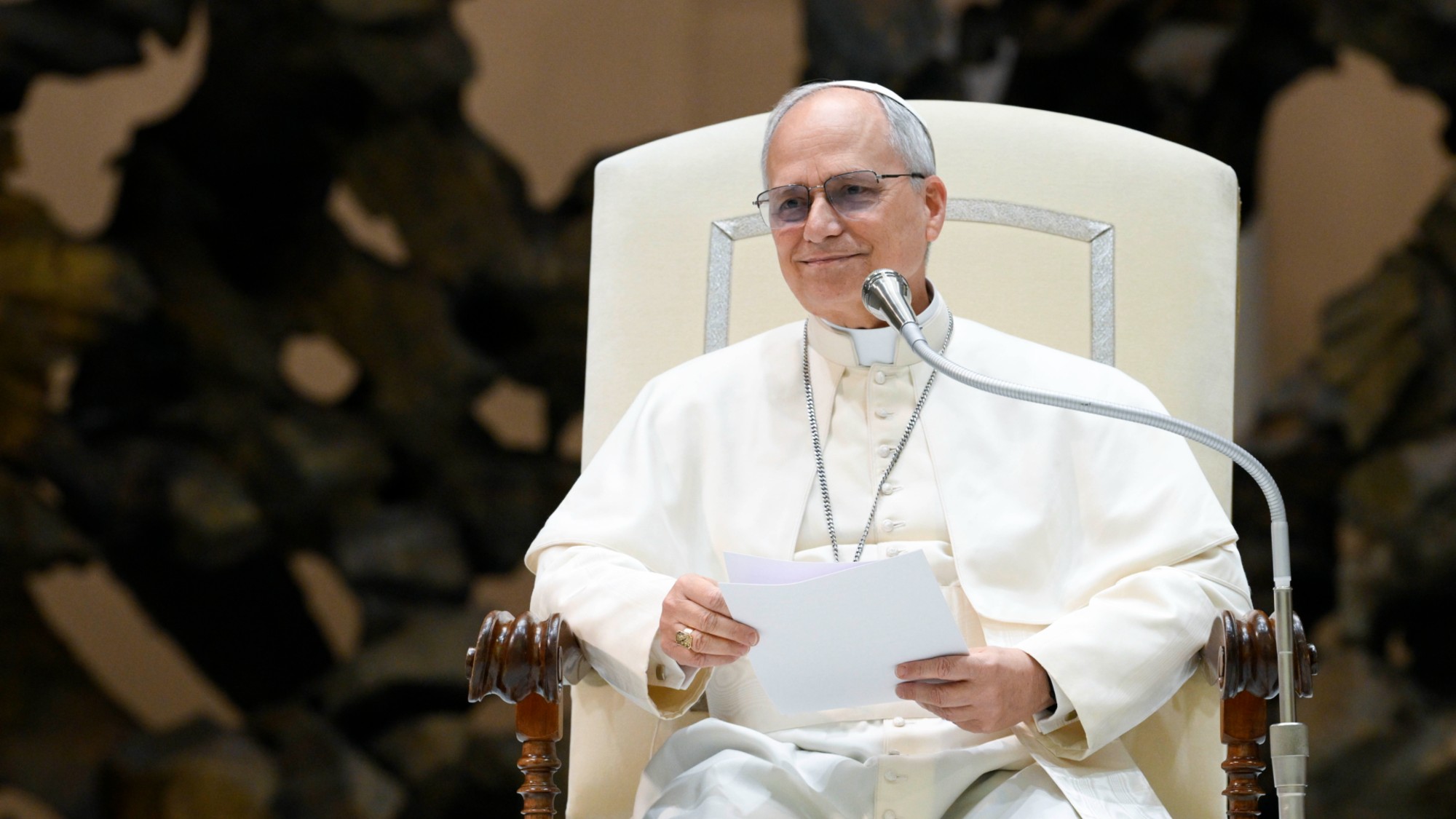 Where the new Pope Leo XIV stands on social issues
Where the new Pope Leo XIV stands on social issuesThe Explainer The first American pontiff is expected to continue some of his predecessor's work
-
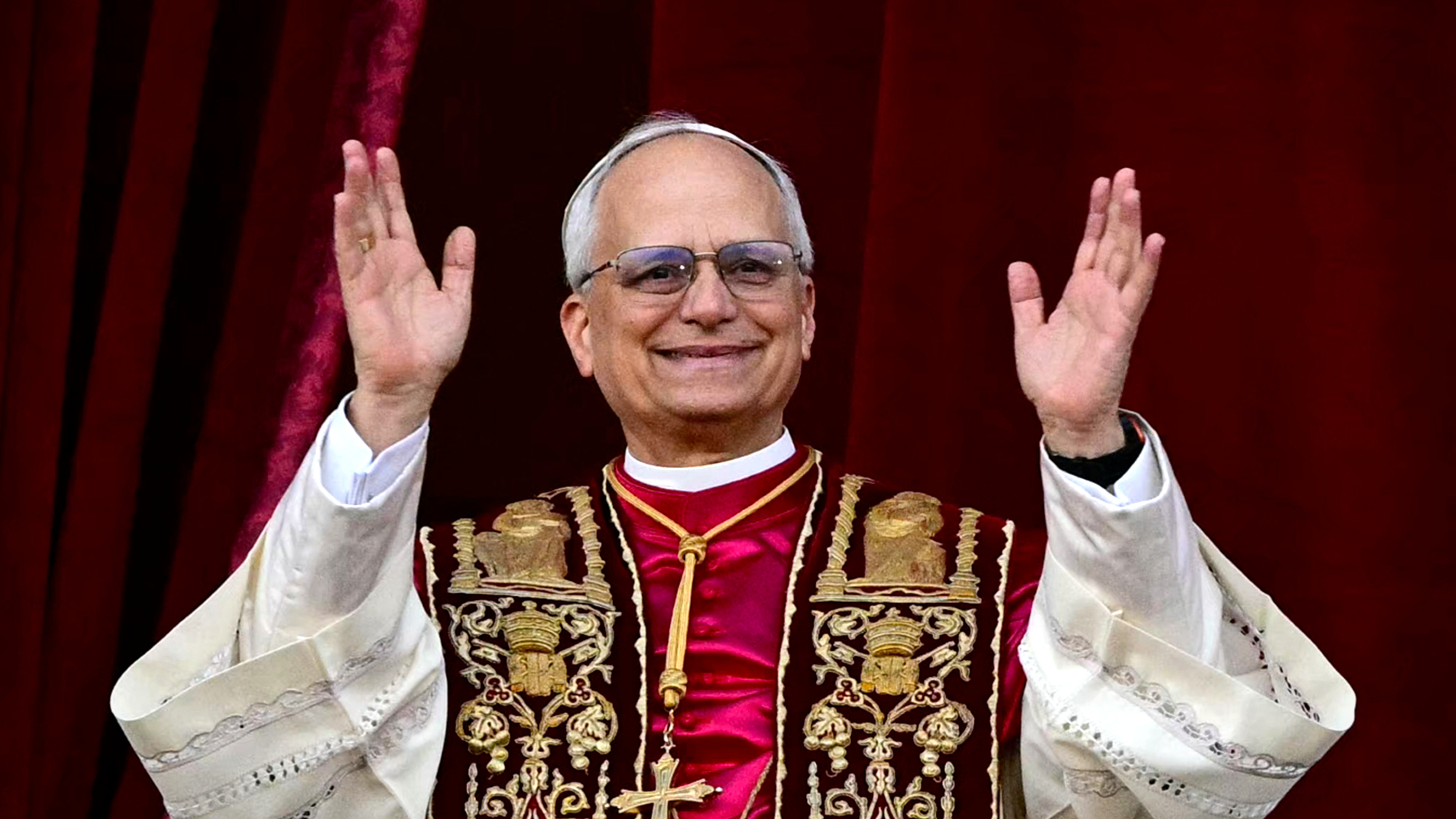 Prevost elected first US pope, becomes Leo XIV
Prevost elected first US pope, becomes Leo XIVspeed read Cardinal Robert Francis Prevost is a Chicago native who spent decades living in Peru
-
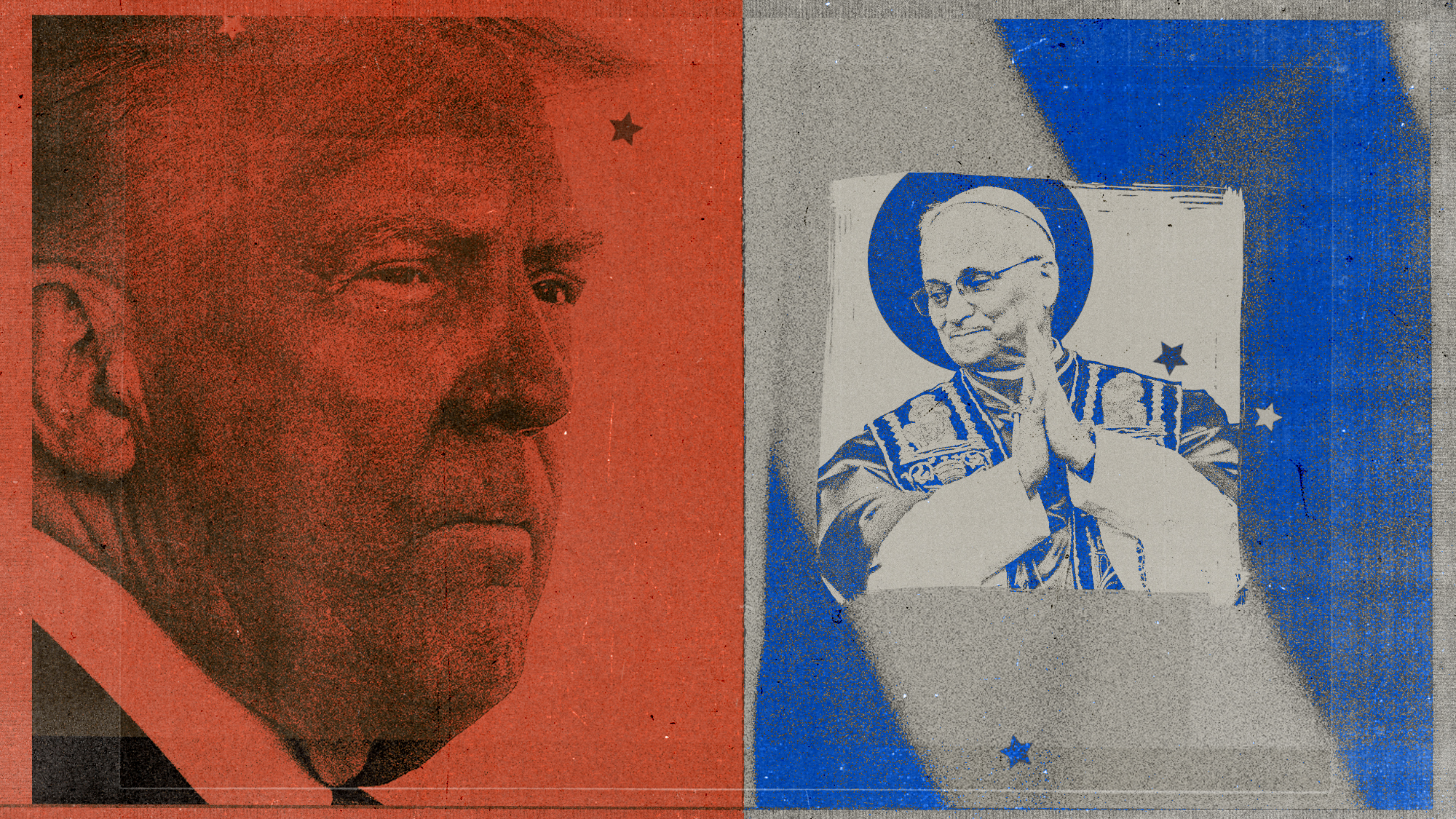 Leo XIV vs. Trump: what will first American Pope mean for US Catholics?
Leo XIV vs. Trump: what will first American Pope mean for US Catholics?Today's Big Question New pope has frequently criticised the president, especially on immigration policy, but is more socially conservative than his predecessor
-
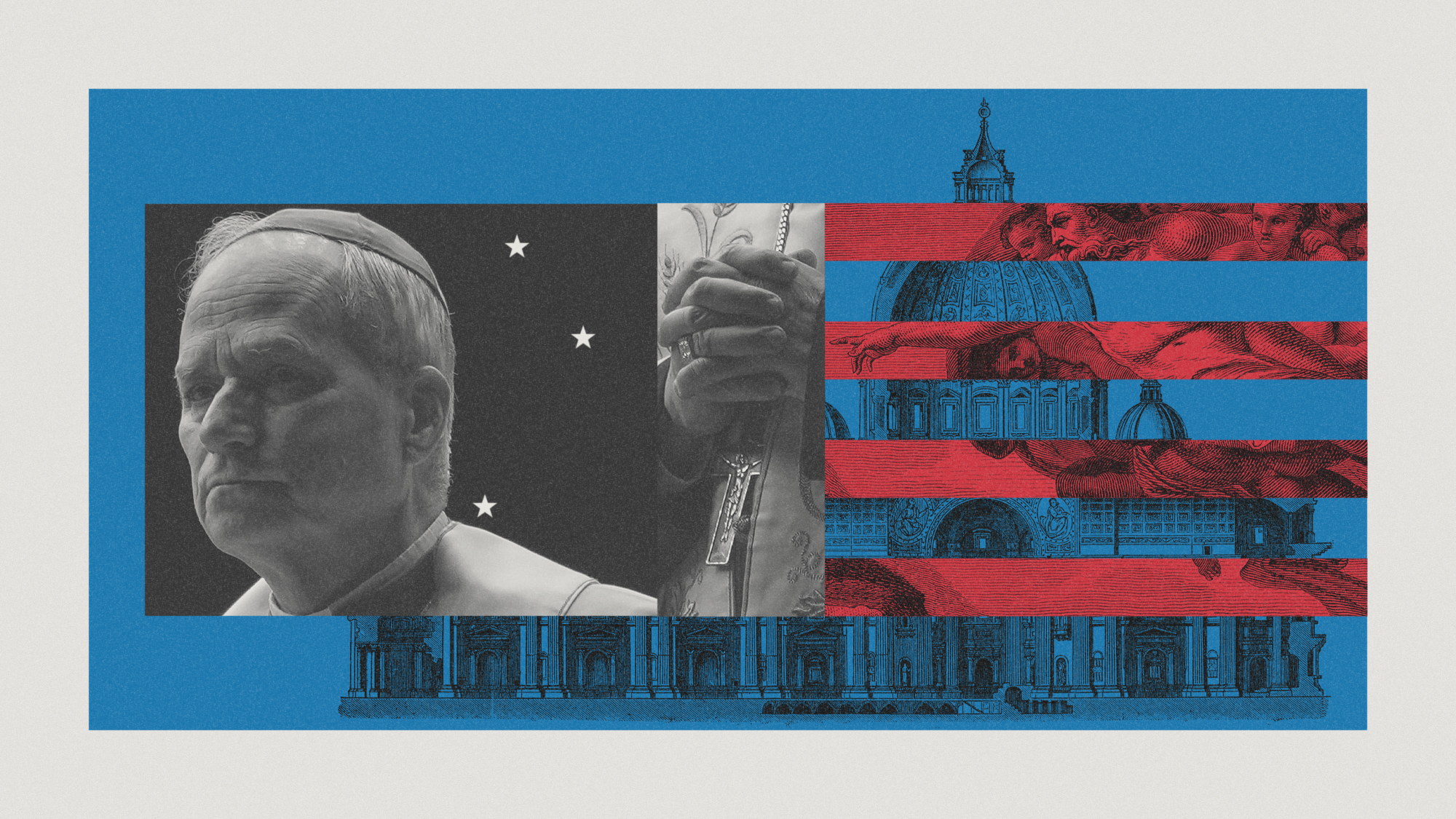 Could the next pope be an American?
Could the next pope be an American?Today's Big Question Cardinal Robert Francis Prevost is a possible 'superpower pope'
-
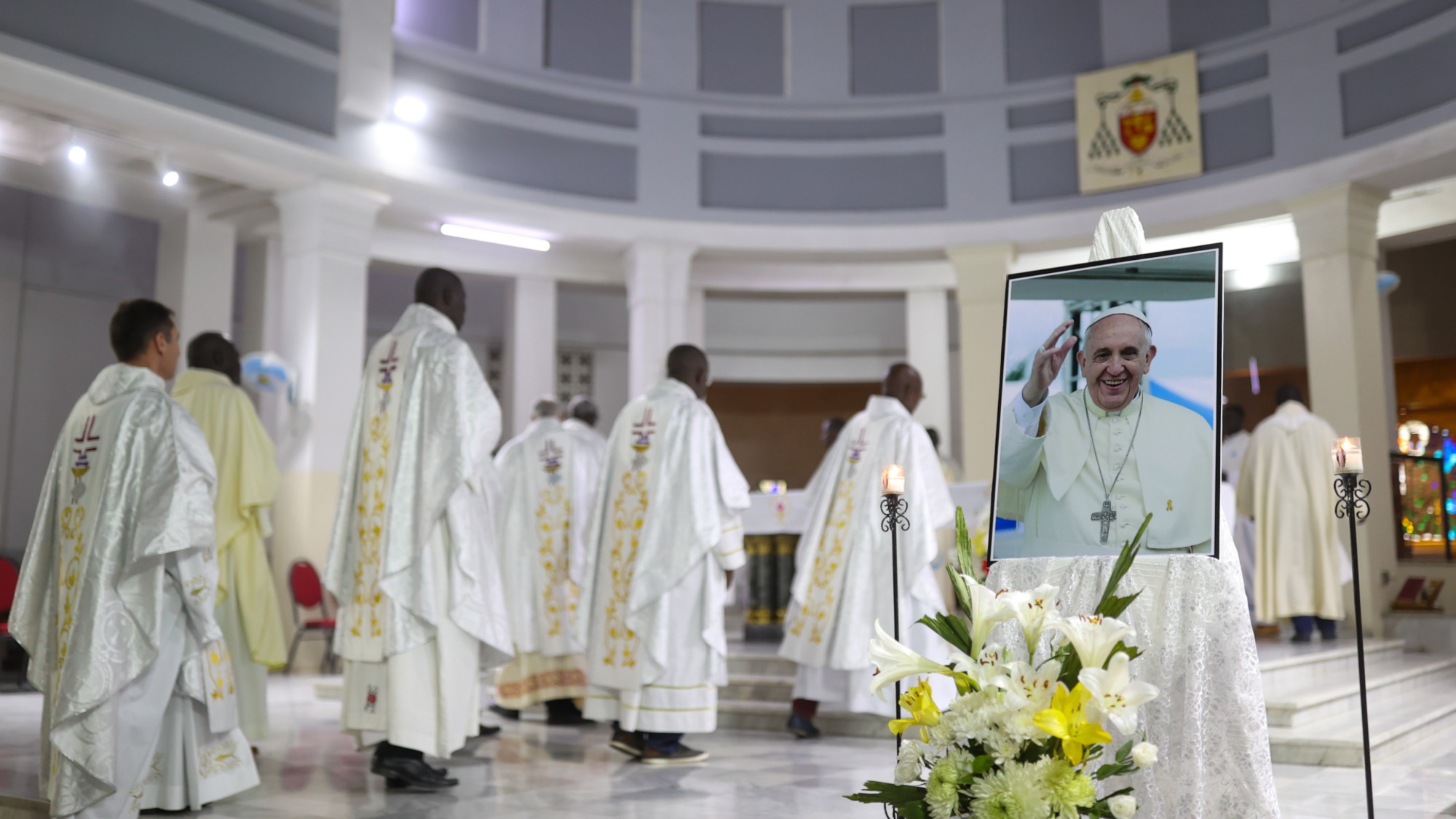 What would an African pope mean for the continent?
What would an African pope mean for the continent?Today's Big Question The Catholic Church has never had a pope from Africa in its modern history
-
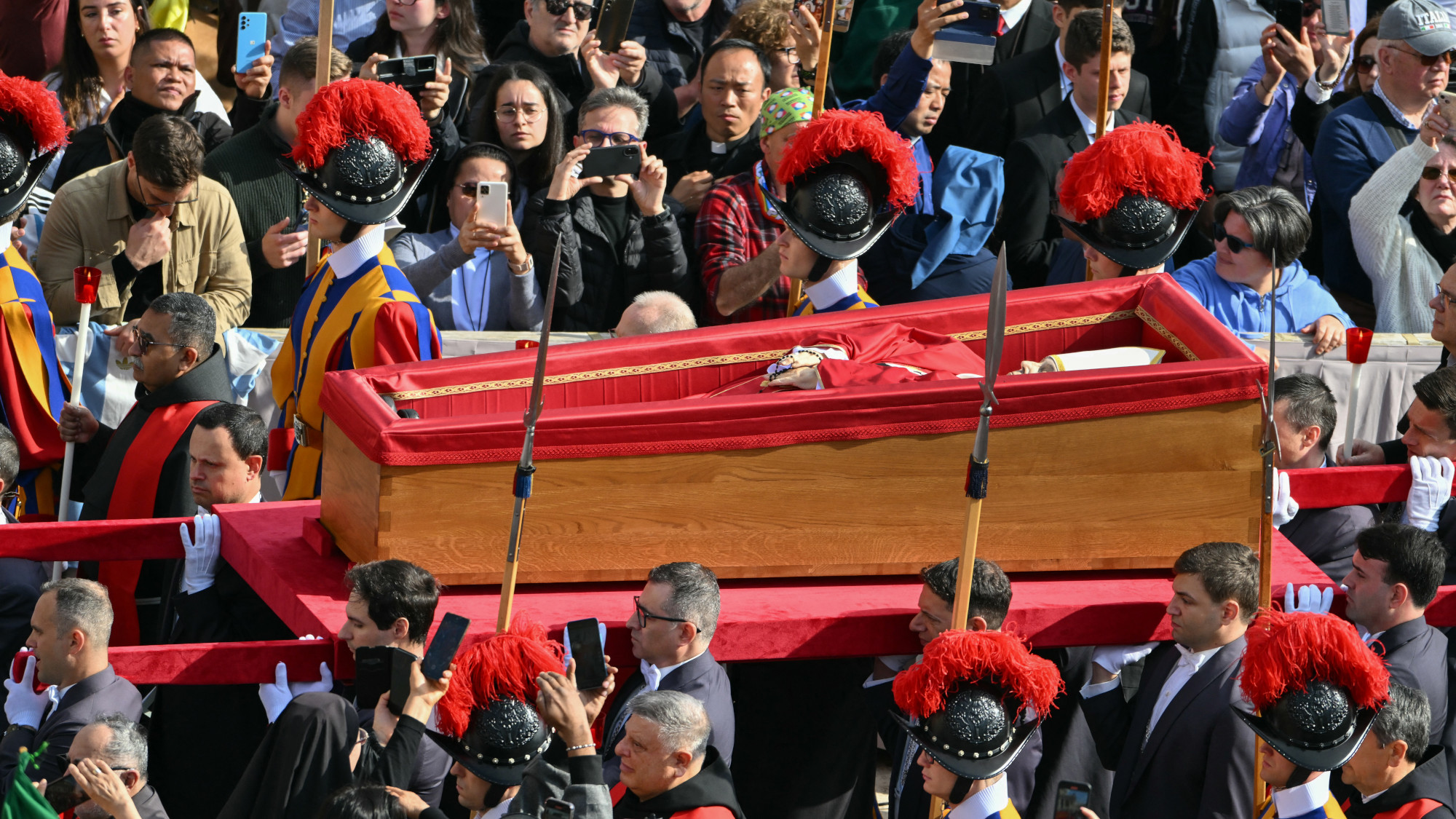 Millions mourn as Vatican prepares for transition
Millions mourn as Vatican prepares for transitionFeature Pope Francis, the pontiff who challenged tradition, leaves the Catholic Church at a crossroad to choose his successor
-
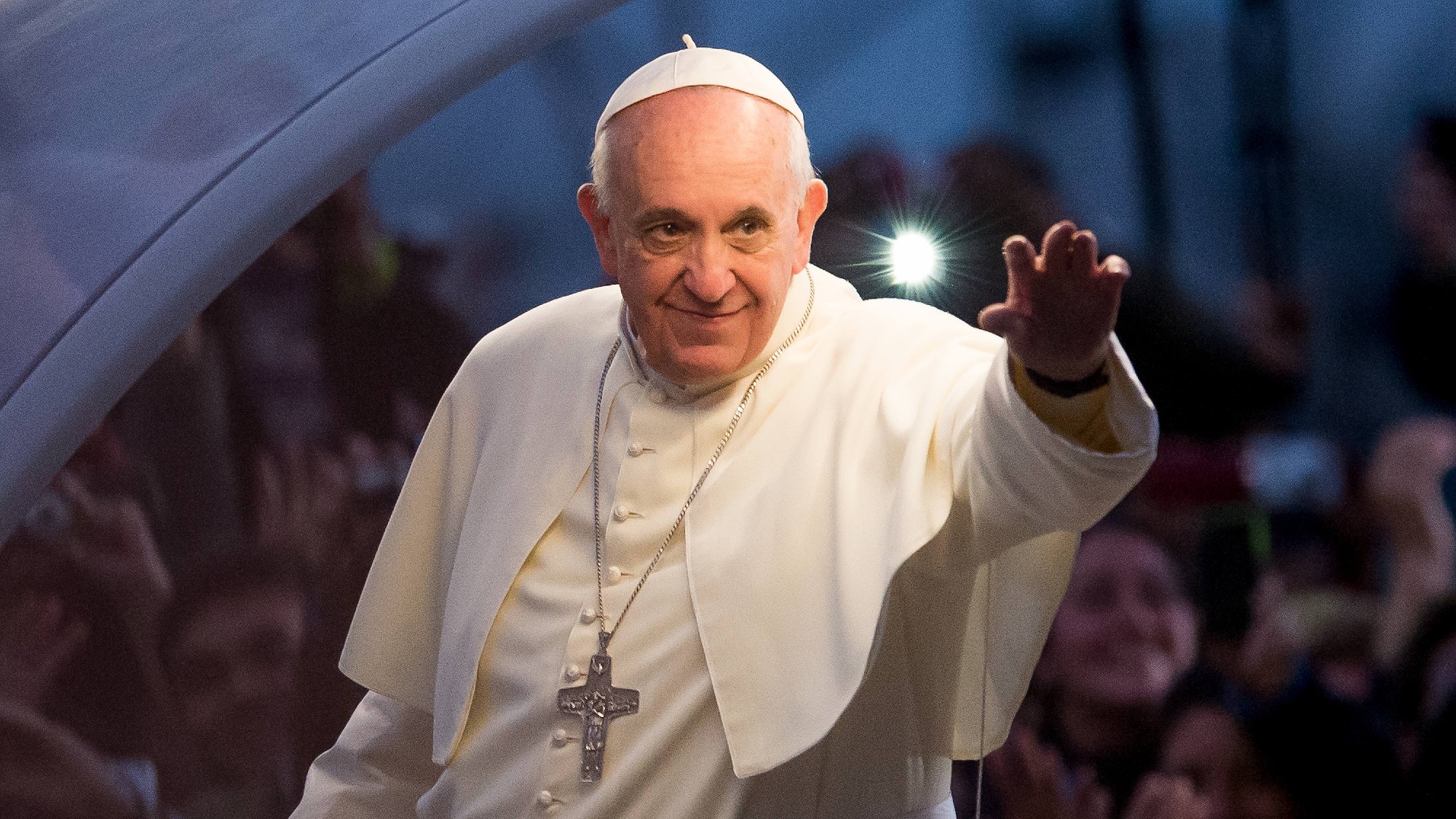 Pope Francis obituary: modernising pontiff who took the Gospel to the margins
Pope Francis obituary: modernising pontiff who took the Gospel to the marginsIn the Spotlight For traditionalist Catholics, Jorge Bergoglio's reforms often seemed to go too far; progressives, though, will demand more of his successor
-
 How will the next pope change the Catholic Church?
How will the next pope change the Catholic Church?Talking Points Conclaves can be unpredictable
